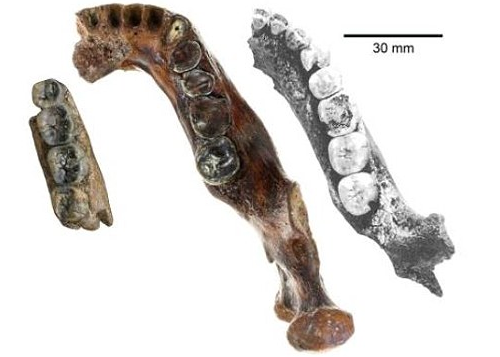Fossil found by a Taiwanese fisherman
A fossilized human jawbone discovered by a Taiwanese fisherman, sold to an antique shop, then recovered by researchers may reveal a new kind...
http://asia-uncovered.blogspot.com/2015/02/fossil-ound-by-taiwanese-fisherman.html
A fossilized human jawbone discovered by a Taiwanese fisherman, sold to an antique shop, then recovered by researchers may reveal a new kind of prehistoric man. Researchers said that it was nearly 200,000 years old and suggests a fourth type of ancient human who lived in Asia long before Homo sapiens ever came to be.
Scientist believe that human jaws and teeth became smaller as they evolved. But unlike other fossils known archaic Asian hominids include Homo erectus, found in Java and China ; the shorter Homo floresiensis from Indonesia ; and neanderthals in the Russia Altai mountains. The newly discovered jawbone is thick with large molars, suggesting the existing of a different group.
Researchers from Taiwan and Japan named the ancient human "Penghu 1", after the Penghu Channel where the fossil found.
The team of researchers spent five years to analyze the bone, which was difficult to date because it had been recovered from the sea.
 |
| The new jawbone (center) is thicker than those of other ancient human fossils found in Java (left) and Peking (right). |
Scientist believe that human jaws and teeth became smaller as they evolved. But unlike other fossils known archaic Asian hominids include Homo erectus, found in Java and China ; the shorter Homo floresiensis from Indonesia ; and neanderthals in the Russia Altai mountains. The newly discovered jawbone is thick with large molars, suggesting the existing of a different group.
Researchers from Taiwan and Japan named the ancient human "Penghu 1", after the Penghu Channel where the fossil found.
The team of researchers spent five years to analyze the bone, which was difficult to date because it had been recovered from the sea.











